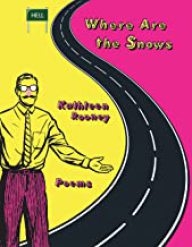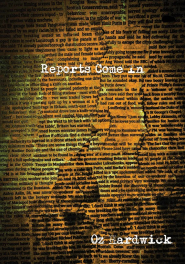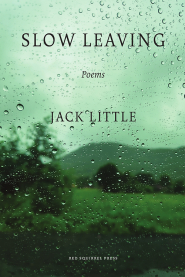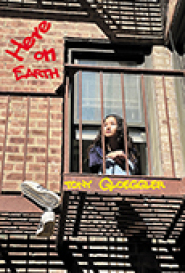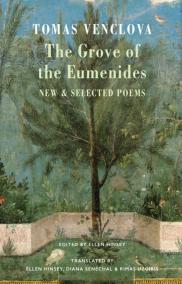
Kathleen Rooney, Where Are the Snows,
Texas Review Press, 2022.
ISBN:978-1-68003-292-5. $21.95. 73pp.
Kathleen Rooney dons her Groucho glasses in “Dress Up,” the opening poem to this marvelous collection, and then delivers non-stop insights and wisecracks in the over three dozen poems that follow, in this X.J. Kennedy Prizewinning collection, as if she is hosting thirty-eight episodes of You Bet Your Life. The only thing missing is the cigar. Perhaps a more apt comparison is with another wisecracking, philosophical Chicagoan, Saul Bellow. Indeed, Rooney’s ruminations remind one of the letters Moses Herzog writes in Bellow’s 1964 novel. But you do wind up betting your life on these poems; there’s so much truth and humor and attitude here, a City-of-the-Big-Shoulders honesty. As she writes in the opening poem, channeling Groucho:
“I never forget a face, but in your case I’ll be glad to make an exception”: us to the 21st century so far.
Each of the
prose poems (essays? sermons? comic monologues?) in Where Are the Snows focuses on a topic – calmness, motherhood, superheroes, badminton, museums, etc. – and we follow Rooney’s thinking as
she muses (“muse” is another of her topics) on the implications and associations the subjects arouse.
Only, you have to keep reading before you understand what
she’s on about; the titles do not necessarily spell it out. “A Building That Serves as Living Quarters” takes on the notion of “house” (as opposed to “home”) pretty plainly, just as “A Place Set
Aside for Burial of the Dead” clues us in that Rooney is going to contemplate cemeteries, but “The Act of Passing Through or Across” doesn’t tell us right off that she is going to write about buses,
public transportation.
As all good essays do, Rooney’s “whatchamacallits,” as Dinty Moore calls them in an interview with Rooney, deliver interesting information. Blaise Pascal conceived the
first bus service in 1661, for instance; the term “omnibus” means “for everyone.” (Rooney’s etymological insights provide some of the most delicious nuggets – the word origins of “calm,” “talisman,”
“cemetery,” “priest,” “Lucifer” and “badminton” among them.)
Also, as in a good expository essay, she cites an astounding number of authorities, with unique perspectives on a given topic, from Brian Eno, Diana Vreeland, Francis
Fukuyama (remember him? The “End of History” thinktank guy from 1992?), Patti Smith and Frederick Jackson Turner to Stephen King, Shulamith Firestone, Langston Hughes, Basho, Henry Torczyner, Ralph
Waldo Emerson, Lucretius and a dozen more, all providing insight into the idea under her microscope. In “The Special Organ of Breathing and Smelling” (i.e., the nose), Rooney writes, “Supposedly,
Napoleon wrote to Josephine upon concluding the Italian Campaign, I’m coming home in three days, don’t bathe!” It’s also in this poem where she cites Basho: “The temple bell stops – / but
the sound keeps coming / out of the flowers.”
Like the skilled poet that she is, Kathleen Rooney also writes delicately lyrical lines throughout the course of these poems. In “Pedestrian Access,” in which
she considers walking as both a physical act and a meditative practice, she writes, “A morning constitutional, mourning the Constitution” (Concern about American and geopolitical issues recur.), and
“Silence approaches in its gray felt cloak. Walk with it for as many blocks as possible without talking.” In “The Ten of Pentacles,” which takes off from the tarot
deck,
One nation under a sky of five-pointed stars, silver-gilt over people who feel no guilt. What could turn a fat cat into a radical?
Interpersonal intimacy from infancy through death – that’s a form of wealth.
One of my favorites is in the house poem: “Where seclusion seduces like an unreliable suitor. Seclusion sounds sexy; reclusion like a hex.”
In the poem about cemeteries (“Cemetery from the
Greek for sleeping place”) she writes:
The deer here seem to hold the dead very dear, grazing near headstones to leave the carvings clear. The cottontails hop softly, as if they know beneath their feet are the ceilings of the deceased.
Such a nimble
use of language! In “The Word by Which a Person or Thing Is Denoted” – i.e. names – she writes “‘Donald Trump’ is destined to be one of the most detested names in history. In the name of all that is
holy, why won’t he die?” To which I raise my fist in a Josh Hawley salute of solidarity!
The title of the collection is recognizable, from
François Villon’s famous fifteenth century poem, “Ballade des dames du temps jadis,” in which the refrain Mais où sont les neiges d'antan! appears
several times, the classic example of the Ubi Sunt genre (“where are…they?”). In her poem, titled “Ubi Sunt,” which takes on the idea of “yesterday” (“The clock radio woke me with
that Chad & Jeremy song: That was yesterday and yesterday’s gone,” the poem begins.), Rooney irreverently, hilariously concludes the poem (listen for her Groucho Marx
voice):
Don’t forget: forgetting is a proven coping mechanism.
Mais ou sont les neiges d’antan, goddammit? Villon was a criminal, but he asked the best question.
The epigraph to Where Are the Snows is also from François Villon, his “Ballade [I will die of thirst beside the fountain],” and hints at the hope and despair that Rooney wrestles with throughout this collection.
In my own country I’m in a distant land
Beside the blaze I’m shivering in flames
Naked as a worm, dressed like a president
I laugh in tears and hope in despair
Kathleen Rooney’s collection of “whatchamacallits” is a true delight to read, funny, expressive, rhythmic, informative, opinionated, erudite and subtle. As Groucho once said, “The secret of life is honest and fair dealing. If you can fake that, you’ve got it made.” Kathleen Rooney blends the deadly serious with the artistically ironic to give Where Are the Snows a playful urgency.
Charles Rammelkamp
To order this book click here
Charles Rammelkamp is Prose Editor for BrickHouse Books in Baltimore, where he lives, and edits The Potomac, an online literary journal. http://thepotomacjournal.com. His photographs, poetry and fiction have appeared in many literary journals. His latest book is a collection of poems called Mata Hari: Eye of the Day (Apprentice House, Loyola University), and another poetry collection, American Zeitgeist, is forthcoming from Apprentice House.
Oz Hardwick, Reports Come In,
The Hedgehog Poetry Press, 2022.
ISBN 978-1-013499-13-6. £7.99. 22 pp.
Readers of Hardwick’s prolific output of prose poetry will relish the opportunity for an immersive encounter with his latest publication. As the title suggests, Reports Come In broadcasts a running commentary on current affairs, skewed by a critical eye cast on British politics (the majority of these poems were first aired on the left-wing online International Times webzine.) Hardwick offers it ‘For those ground down & those who will rise.’
Writing this review in the week we acquired both a new PM and a new monarch I’m struck by that sense of continuity and inevitability summed up in the phrase: ‘The King is Dead. Long Live the King.’ In the case of these ‘reports’ the unwelcome and apparently relentless ubiquity of political corruption and ineptitude, uneven and corrosive social inequality provide Hardwick with rich pickings for his Kafka-esque critique of the post-pandemic, post-Brexit, war-torn, climate-changed world in which we ‘live.’
In some poems, the almost deadpan and disingenuously banal presentation of the cycle of events is its own political indictment: take ‘The Day After,’ which lists various events which may have preceded where we are now: ‘a distant relative’s birthday, the unrecorded loss of a refugee boat, a charity dinner for old Etonians, a party in the park, a longer queue at the food bank.’ The juxtaposition of innocuous with the disturbing punches above its weight.
Hardwick’s prose poetry is always an exemplum of what the form can achieve. ‘Mandate’ swings to a subtle rhythm with repeated phrases and rhymes acting almost like a jazz riff: ‘the crying starts, the lying starts …there’s a bullet in the chamber … the bullet in his obviously false heart…’.Wordplay and association take the reader into a grim spiral: ‘There’s an art to dodging the issue, an art to dodging bullets, and an art to seeing through the artificial distinction between the two when bullets are issued like prescription painkillers. After prescription, proscription.’ We end where we began (though thoroughly shaken up) with a storm. Every poem in this slim volume (Hardwick has a preference for chapbook-length collections at present) repays close reading and re-reading.
Hardwick’s view of the world is ferocious, but also deeply humane. The anger is righteous, and on behalf of ‘those who are ground down’ as much as a personal outpouring. Here is poetry which shouts about the injustice and horror of contemporary life, poetry which uses beauty and close attention to form as a means of transformation. We may not be able to change the world, but with Hardwick’s volume in your pocket, you will look at with a new sense of what to challenge, and how to survive.
Hannah Stone
To order this book click here
Hannah Stone is the author of Lodestone (Stairwell Books, 2016), Missing Miles (Indigo Dream Publishing, 2017), Swn y Morloi (Maytree Press, 2019) and several collaborations, including Fit to Bust with Pamela Scobie (Runcible Spoon, 2020). She convenes the poets/composers forum for Leeds Lieder, curates Nowt but Verse for Leeds Library, is poet-theologian in Virtual Residence for Leeds Church Institute and editor of the literary journal Dream Catcher. Contact her on hannahstone14@hotmail.com for readings, workshops or book purchases.
Jack Little, Slow Leaving,
Red Squirrel Press, 2022.
ISBN: 978-1-913632-17-5. £10.00. 52pp.
The fact poetry collections rarely need to be read sequentially, being predominantly ‘albums’, means that one can begin to read a book of poetry at any point. When I picked up my copy of Slow Leaving it fell open at page 36. The following words were the first my eyes settled upon:
It’s been seven years since I left,
the baby is a policeman,
never doubtful now.
If I had been browsing in a bookshop, coming across a stanza like this alone would have been enough to induce me to buy the book. This is writing that is irresistibly vivid, invested with an unerring poetic logic which works intuitively and is characteristic of the most vital poetry. The mood of Little’s work reminded me of Miklos Radnoti, the Hungarian poet, particularly the latter’s marvellous short poem ‘Simple-Minded Song about my Wife’. A similar playfulness and wry humour is to be found in Little’s poem, ‘On resisting the Urge to be Sensible’, in which a slide in a children’s playground proves irresistible and affords the poet a brief escape from adulthood.
The three lines extracted above give a fair indication of the timbre of the collection and of Little’s style, which will I am fairly sure see him categorised as idiosyncratic. This is not necessarily a positive trait but Little inhabits the distinction with aplomb. The book itself is the classic slim volume, containing only 41 poems, not one of which extends over two pages (a fact that would please the purists who feel that any poem that does this is transgressive). Slow Leaving is a testimony to the truism that quality outweighs quantity.
The themes implied by the title of the collection are vividly conveyed throughout. Several poems are explicit about location: North Mexico, Dublin, Achill Island while the interplay of departure and arrival is continually counterpointed. This aspect of his work is reflected in a register that veers between lyrical intensity and a vérité that borders on reportage. We see this in ‘Outside a Dublin railway station, 3.48 a.m.’, with the expressionism of its opening line: “Moon of crescent worm, fumbling fat with blood” contrasted with: “Two Polish lads clean the street, joke about last night’s imagined encounters/ as the other flips two fingers between English and impossible consonants./I hand them someone else’s used-up lighter and they look at me suspiciously.” This is so spare it could have been rendered as prose. Both registers work in counterpoint to each other, enhancing the poem as a whole.
An additional theme explored in the collection is language itself. In one notable poem, ‘In Tlalpan Square’, language becomes concrete, something to be traversed:
Doctor Alvaro lumbers purposefully
as I step behind – I follow in the treads of his
unravelling Spanish, striving to keep up.
Elsewhere in the poem, this tangibility of language is further expressed with lines such as: “I shelter a touch of words” and “We play hopscotch with slow words.”
The foregrounding of language achieves its apogee in ‘Languaje’. Little is of British and Mexican heritage and in ‘Languaje’ he acknowledges this with a poem that while predominantly written in English is peppered with Spanish. One does not need to understand the meaning of the Spanish words to experience their weight and measure. The meaning of the title is obvious, of course but elsewhere words that cannot be understood by Spanish non-readers slip away from the semantic. One might be able to reasonably assume that ‘agua’ is water but several remain opaque. Even then, it is possible to “hear” how the Spanish words might be pronounced, which adds to the purely auditory aspect of the poem. The overall effect is mesmerizingly lyrical.
Little’s dual heritage is captured in another intriguing poem entitled ‘Heterochromia’. This was a new term for me. It means having different coloured eyes in the same person, in Little’s case an “almond eye” and a “sea green eye”. His eyes become a metaphor reflective of his identity: “Autumnal left and sea-storm right,/ my nose is a bridge between worlds…each is a different language”.
Little’s poems are delicate but they are far from lightweight. They are invested with a quiet strength, possessing a power which often eludes poems that are more demonstratively constructed. It is the subtlety of the writing that attracts, and even when it is sometimes elliptical rather than being a cause for frustration what draws the reader in is a sort of luminous quality that defies analysis. Indeed, there is something restorative in Little’s work that makes it stand out, ensuring that this is a collection that you will want to own and revisit frequently.
David Mark Williams
To order this book click here
David Mark Williams writes poetry and short fiction. He has two collections of poetry published: The Odd Sock Exchange (Cinnamon, 2015) and Papaya Fantasia (Hedgehog, 2018). For more information go to www.davidmarkwilliams.co.uk
